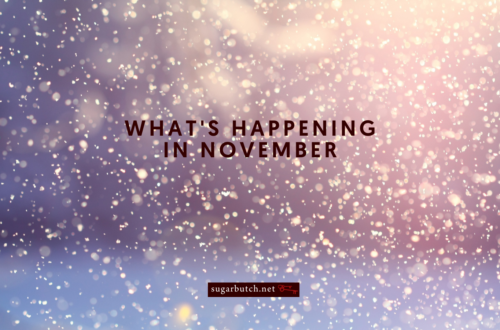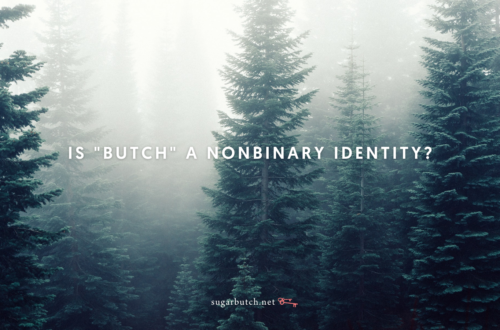This site contains explicit writings on kink practices, dominant/submissive relationships, and queer kink erotica (among other things). All characters in role play or non-consent scenes are consenting adults. Content warnings are included.
President and Conference Chair for Butch Voices. butchvoices.com | @BUTCHVoices
Photo by Kristin Kurzawa
1. What is your relationship with the word or identity “butch?”
My relationship with the word and identity of butch has been a complex one. I hesitated using it at first as a descriptor for myself since I did not “fit” the stereotype for a number of reasons. So much was wrapped up for me upon first glance in the identity of butch – hair style, clothing, class, age, race, sexual preferences, boundaries, underwear, shoes, etc… in order to use the identity for myself. Or so I thought. I thought that I had to already have it all figured out, and have it all in place in order for me to identify as a butch. Not knowing any other butches impeded this process, because I only knew what little I saw about butches. The disassociation the lesbian community was having at the time over anyone who looked butch, much less identified as butch, didn’t really help matters either.
Over time for me, it became less about my needing to fit a specific equation of x + y + z = butch. I began to see that it was more about how I felt inside. I did a lot of internal work around the various facets of myself in regards to my preferences. When I gave myself the permission to get beyond the stereotypes, I could relax and start to become at home with the word. For me, butch is an identity that is personal, as well as sexual and political, too.
With doing community organizing with BUTCH Voices, I have seen ‘butch’ as a polarizing word. For some it has become more of an umbrella term that continues to bring folks together both online and in person, who in the past would not have been in the same room. For others it is a word that gives them the idea that they can ape the worst traits in men. Being a misogynistic asshole does not make someone butch. I enjoy when people can use their preferred identities to start conversations, find commonalities, but not dismiss the differences, or abuse privileges sometimes afforded to us for presenting masculine. Finding strength in the diversity of what butch means is key for us as a segmented community. The identity we choose for ourselves is not the end all, be all about us. It’s only the tip of the iceberg. We can stay divided over semantics and assumptions, or we can find common ground and actually work together to combat the many issues that we all face no matter the language we choose for ourselves.
2. What kind of words and labels, if any, do you use to identify yourself?
I am a lover of language, so I do have some strong personal relationships with certain words around my identity such as: butch, genderqueer, transgender, masculine of center (from B Cole and the Brown Boi Project), dyke, feminist, activist, queer, and gender non-conforming to name a few.
3. What do you wish you could tell your younger self about sex, sexuality, or gender?
I would tell my younger self to not to be so in a rush with the need to figure it all out. But I’m not sure that my younger self would listen. My life’s lessons had and continue to have to be experienced first-hand, which isn’t good or bad – it just is. I am constantly learning more about myself and adding this knowledge and reforming opinions I have along the way. Such is life, and it’s more about the journey than the destination.
Anything you’d like to add?
Butch is what you make of it, and there is no one way to be butch.




I wholeheartedly agree with this “Being a misogynistic asshole does not make someone butch” .. this attitude is one i saw a lot in the butches around me at a time when I could have embraced ‘butch’ as an identity for myself. I didn’t feel comfortable choosing that label because I worried about perceptions people had about butch women being imitation men. It took another 10 years for me to take the term back, with pride and with the understanding that I could be butch my own way.
I agree that the labels and identities we choose for ourselves should be starting points, not boundary lines.
Awesome interview! Joe, I’m honored to be in community with you.